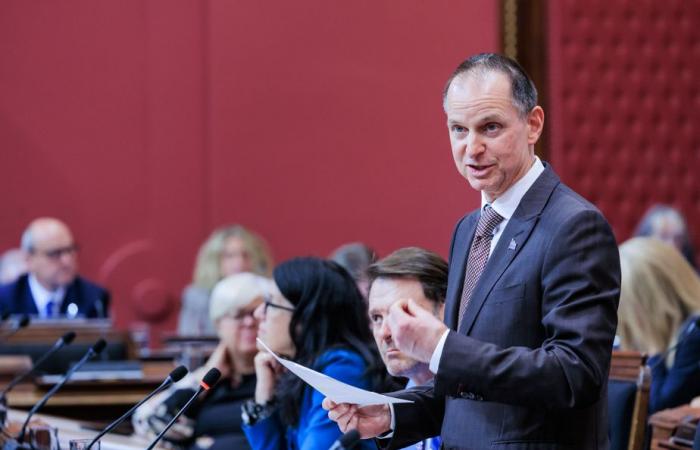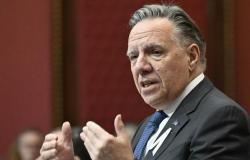For the Minister of Finance, Eric Girard, the matter is settled. The inclusion rate for capital gains above $250,000 increased in Quebec on June 25, even if the future of the tax measure seems uncertain at the federal level.
Posted at 3:50 p.m.
Stéphane Rolland
The Canadian Press
“The measure is in force and will be in force until a new elected government [au fédéral] would express the desire that it is no longer in force,” said Minister Girard on Thursday noon during a speech as part of the unveiling of the Report on Taxation in Quebec from the Research Chair in Taxation and Public Finance of the University of Sherbrooke.
The Trudeau government announced, in its budget last spring, an increase in the capital gains inclusion rate, from 50% to 66%, from the threshold of $250,000, since June 25, 2024. After the announcement, all provinces, including Quebec, have harmonized with the federal decision.
However, Parliament, prorogued until March 24, has not yet voted to formalize this change.
The Canada Revenue Agency (CRA) indicated that it would still apply the government’s intentions. The Department of Finance Canada believes that parliamentary convention is that tax proposals, such as capital gains tax measures presented, come into force as soon as the government files a notice of ways and means motion.
For his part, Mr. Girard said he shared this interpretation of parliamentary traditions. There is no consensus on this reading among the legal and tax experts who have spoken in the economic press in recent days.
Read “Capital gains: CRA could be in trouble”
In its economic update last fall, the Quebec Ministry of Finance estimates that the increase in the inclusion rate will bring an increase in tax revenues of 1 billion for the 2024-2025 fiscal year.
A look back for 2024?
Without directly alluding to the possible election of a Conservative government in Ottawa, Mr. Girard acknowledged that it is possible that a new administration decides to return to the old inclusion rate.
If this were the case, he doubts that the decision would affect the gains made in 2024 and 2025. “If there was a change in the future, I anticipate that the change would be prospective and not retrospective,” he says. he.
Going back would be unfair while taxpayers made decisions before the June 25 deadline to take into account the announced changes, according to the minister. “There was an incentive to make transactions before the end of June to stay under the old inclusion rate. »
A retroactive change would also bring certain complications, continues Mr. Girard, who points out that the increase in the inclusion rate was also accompanied by relaxations for Canadian entrepreneurs, particularly with regard to the deduction for purchase options.
“There were relaxations. And there, everyone is only talking about increasing the inclusion rate, so it’s extremely complex. »






